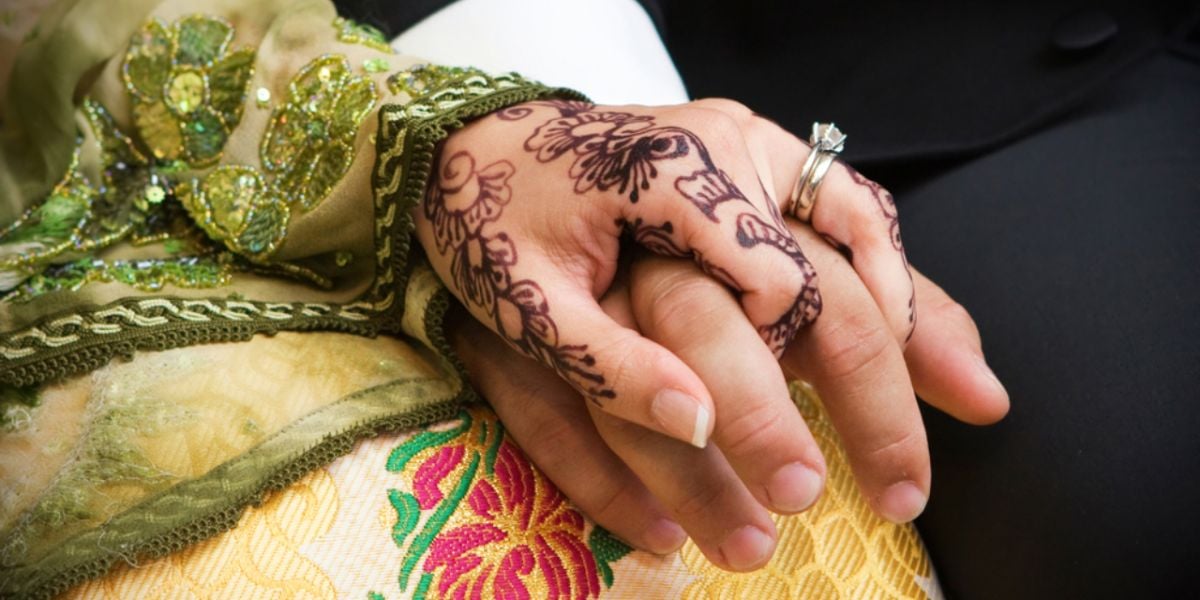
If you want to get married in Morocco, there are different steps and a variety of procedures to follow. These can be quite simple or long and tedious, depending on your nationality. You must seek information from your consulate or embassy as well as with the Moroccan authorities before proceeding.

Types of marriages in Morocco
The procedures vary greatly depending on your nationality and can be fairly simple or quite tedious. Check the requirements before making any plans, as the process may be lengthier than expected for some nationalities. For example, the procedures for a non-Moroccan to marry a Moroccan are quite tedious, and two Americans cannot marry each other legally in an embassy abroad. However, marriages in embassies of some sub-Saharan African countries take less time to apply for. You can also consider getting legally married in your country of nationality, and then celebrating the marriage in Morocco.
Procedures
First of all, you must obtain a certificate of legal capacity to marry. This document is essential, regardless of your nationality. To obtain it, you must provide several documents to your consulate in Morocco, including :
- A written application addressed to the family judge containing your identity information and request's subject
- Your criminal record
- Proof of residence such as bills
- A complete copy of your birth certificate
- Proof of citizenship
- Copies of your passport
- 4 passport size photos.
- Proof of address or proof of accommodation may be requested.
- Signed doctor's statement of good health (costs about a 100 Dh)
You will need 3 copies of these documents - signed and stamped at the local prefecture-, which differ depending on your country of origin, and note that they have to be translated. Regardless of your nationality, you and your spouse will next need to produce:
- Birth certificate,
- Residence certificate
- Certificate proving that you are not already married, or a divorce decree stating the divorce is final
- Copy of a national identity card and a passport size photo.
- Medical check (certificat prenuptial)
When you apply for a marriage certificate, you will receive a questionnaire to complete, as well as a booklet on marriage. These documents can be delivered to your embassy or consulate.
Here is a guide to travelling to Morocco.
If you are marrying a Moroccan citizen, your consulate or embassy will proceed with the publication of bans which will determine that there is no objection to your marriage. The bans will be published in your country of residence at the nearest town hall to your home for 10 days. However, procedures can be longer. You may receive your certificate of legal capacity to marry after two months.
Good to know:
You may be interviewed along with your future spouse in order to determine the true nature of your wedding, particularly if marrying a Moroccan citizen.
Celebrating the marriage in Morocco
After delivering these documents to the consulate in Morocco, you will receive an Affidavit of Nationality and the certificate for legal capacity to marry (notarizing fee around 50 USD). Once you have it, you must obtain permission from local authorities. To do so, you first must present the documents to the Moroccan Ministry of Foreign Affairs, which will charge an 80 Dhs fee for the notarization. An interview at the local police station will be required in some cases to review the papers and inquire about the marriage. When it's processed, your file will then be sent to the court. You should first consult the Adoul, or officiant, who will officiate your wedding. Once your file is up, you will go to the family court again before the public prosecutor.
Once these formalities are completed, you will get the approval of the family court (or the embassy, for non-Moroccans) for your wedding. The last step is to visit an Adoul's office (Marriage officer) and ask them to officiate your marriage. They will draw up the standard marriage, which has to be signed in the presence of 2 adult witnesses; the signing is traditionally done at the wedding ceremony. At this point, you can finally begin planning the party!
Good to know:
You may talk to the local imam who can take care of the entire process for a fee.
Marriage traditions in Morocco
One of the things you should keep in mind is that for a non-Moroccan man to marry a Moroccan girl (in Morocco), he first has to convert to Islam (which is not a tedious task. Usually, the local imam will take care of this process, unless you account the circumcision as well). However, for a non-Moroccan woman, she can marry a Moroccan man without converting to Islam.
Other than the legalities, marriage in Morocco relies heavily on tradition. If you want to marry a Moroccan girl, the tradition is that she informs her parents that you will come to their house (along with your parents and some gifts for the bride's family, hence the symbolic sugar block) and officially ask her hand in marriage. The parents will then discuss the details such as the dowry, the date, they might ask about your family, your work, etc. If all goes well, the parents will then express their approval, and bless your marriage.
Despite the dowry being a controversial topic nowadays, it's a tradition in Morocco for the groom's family to offer the bride's family a symbolic gift for the marriage, as the bride's family usually hosts the wedding.
Divorce in Morocco
The procedure for divorce is also supervised by the family court in Morocco. It is usually undertaken by the husband. The first is for the applicant to petition for the authorisation at the prefecture of your judicial district. You will be given an application form which has to be filled out with information relevant to the marriage, the identity of the spouses, children and financial situation. Afterwards, it must be certified by two public notaries and submitted.
The family court will review your file and call the spouses for a reconciliation attempt (two if they have children). The application is automatically considered withdrawn if the applicant refuses to attend the court. If the reconciliation attempt fails, a sum fixed by the court must be deposited by the applicant to the spouse within a 30-day period. When paid, the court authorises the applicant to issue a divorce by two public notaries in the judicial district of the matrimonial home.
Upon receipt of the divorce certificate, the court issues a decision fixing the vested rights of the spouse and children including alimony, child support and custody and the legal waiting period for the wife before getting a second marriage.
Useful link:
We do our best to provide accurate and up to date information. However, if you have noticed any inaccuracies in this article, please let us know in the comments section below.








